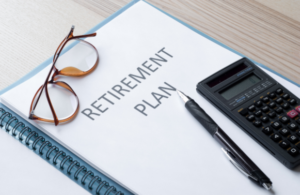Preparing for retirement - what are my options?
Please note the following information relates to pensions held in defined contribution arrangements
 There are a number of options available when you are preparing for retirement offering you flexibility on when you retire and how you can access your pension.
There are a number of options available when you are preparing for retirement offering you flexibility on when you retire and how you can access your pension.
Once you have reached the age of 55 you can access your pension pot at any time and we have listed some of the options available to you below.
- Take 25% of your pension pot as cash and buy an annuity with the balance. An annuity will provide you with a guaranteed income for life - for more information about annuities read our article - "What is an annuity and how does it work?"
- Flexible income drawdown - this is where you can take some or all of your tax-free cash allowance while the rest of your pension remains invested and you drawdown an income from your pension as and when you need it.
- Withdraw your money in one-off lump sums, via what are known as 'uncrystallised funds pension lump sums (UFPLS)'. Under this route, 25% of each withdrawal is tax-free while the remaining 75% is taxable at your marginal income tax rate.
- If you retire and do not require access to your pension you can leave your pension pot invested to increase over time until it is required
What should I do with my pension if I am due to retire in the next 5 years?
When markets crash, as happened in the financial crisis and more recently during the pandemic, investors will experience a fall in the value of their investments as stock markets tumble. Those with a defined-contribution pension pot will need to review their investments and may also have to review their retirement plans.
Investors who are in sight of their planned retirement date (next 5 years) have options available to them to mitigate the potential reduction in their retirement savings should there be another market downturn and these include:
1) Do nothing
Most stock-market downturns will regain their previous high points within three years. If you have a period of 3 to 5 years before your chosen retirement date then your investments could well return all their losses, or maybe more, before you retire. Obviously there are no guarantees.
2) Review your budget
If you are looking to retire in the next 3 to 5 years then it would be a good idea to review your spending now. Going through your income and expenditure will give you a good idea if any savings can be made in the short term to enable you to still retire on your chosen retirement date should investment markets not recover. For some useful tips on how to create a budget read our article "Start 'big picture budgeting".
3) Check if you are entitled to any benefits
You may be entitled to some benefits, either now or in your future retirement, that you may not be aware of. Here is a simple tool to find out your own benefit entitlement.
4) Calculate your future pension income now
When making retirement plans a good starting point is to find out how much your likely retirement income will be. We have created a simple pension calculator that will calculate your likely future pension income if your pension investment continues at the current rate. Once you have a future pension projection you will understand your likely pension income and can then decide what steps you need to take to improve things.
5) Retire but defer taking a pension
Planning for retirement is exciting with thoughts of doing what you want when you want and one endless holiday. However, this is not such an exciting prospect if your pension pot and future income have fallen in value.
If you have other savings held in cash that have not been affected by the market crash then you could access that money to support you in retirement while your pension pot recovers in value. If you don't already have a cash buffer then start building one ASAP by budgeting and saving money into a savings account. But it's not just personal pensions and company pensions that you could defer accessing. If you are approaching your state-pension age you could defer taking your state pension too. For every year that you defer taking your state pension, you will get up to an extra £666.64 every year once you start claiming it.
6) Carry on working
If you are fit and healthy then one of the first things to consider is to carry on working. You could carry on with your current job or move to a different job that may be more enjoyable, or even go part-time. If you have time before your planned retirement date then you can start to investigate your options to carry on working, in some capacity, after this date.
Be sure to check with your pension provider whether there are any conditions or penalties for changing your designated retirement date. If you continue working and leave your pension to grow (and even continue to contribute to it) this should create an even larger pension when you finally retire.
7) Increase your pension contributions
If you have a period of time (minimum 5 years) before your planned retirement date you could consider increasing the contributions you make into your pension. Now could be a good time to increase your regular investments and gain the benefit of drip-feeding contributions over a period of time, via what is known as 'pound cost averaging'.
It is worth noting that 'Pound cost averaging' works best when markets are falling, as you buy units in a fund at a lower price and get more units for your investment. When the market recovers your investment will be worth more than if you had invested the entire lump sum before the market crashed.
If you are currently in a workplace or an old personal pension scheme you may want to consider placing any additional investment in a Self Invested Personal Pension (SIPP). A SIPP can provide a flexible, low-cost addition to any current pension arrangements you already have. For more information read our article "The best & cheapest SIPPs - low cost DIY pensions ".
8) Do not withdraw a lump sum from your pension unless absolutely necessary
If your pension pot is impacted by a sudden market crash then it makes sense to hold back on withdrawing any funds, at least until the lost value has been restored.
If, however, your current mortgage is nearing the end of its term and you want to pay off all or part of your mortgage, leaving you with more disposable income every month, then it could be worth considering.
9) Income drawdown
Income drawdown allows you to take a regular income from your pension pot whilst leaving the remainder of your investment to grow over time. There are no restrictions on the amount of income you can take with the first 25% of each payment being tax-free, but remember you will have to pay tax at your marginal rate on the balance.
Income drawdown is a very flexible income option as you can start and stop income payments as well as increase and decrease the amounts at any time.
For more information read our article "What is income drawdown and how does it work?"
10) Seek the advice of an independent financial adviser
If you need further advice or are concerned about your personal situation, seek the advice of an independent financial adviser. Simply enter your town in the box below this article to find details of independent financial advisers near you.




